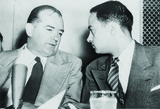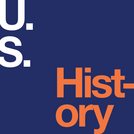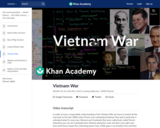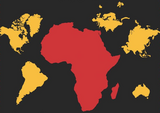
The Challenges of PeacetimeThe Cold WarThe American DreamPopular Culture and Mass MediaThe African American Struggle for Civil Rights
- Subject:
- Social Science
- Material Type:
- Module
- Date Added:
- 07/10/2017

The Challenges of PeacetimeThe Cold WarThe American DreamPopular Culture and Mass MediaThe African American Struggle for Civil Rights

By the end of this section, you will be able to:Explain how and why the Cold War emerged in the wake of World War IIDescribe the steps taken by the U.S. government to oppose Communist expansion in Europe and AsiaDiscuss the government’s efforts to root out Communist influences in the United States


U.S. History is designed for a two-semester American history sequence. It is traditional in coverage, following a roughly chronological outline, and using a balanced approach that includes political, economic, social, and cultural developments. At the same time, the book includes a number of innovative and interactive features designed to enhance student learning. Instructors can also customize the book, adapting it to the approach that works best in their classroom.

This course examines selected past, current, and future sea, air, space, and land battlefields and looks at the interaction in each of these warfare areas between existing military doctrine and weapons, sensors, communications, and information processing technologies. It also explores how technological development, whether innovative or stagnant, is influenced in each warfare area by military doctrine.

Overview of the Vietnam War. Created by Sal Khan.

This course offers an introduction to the major themes and events in modern global history from 1750 to the present. Unlike courses that focus on the history of a specific country or region of the world, this course will explore the interconnected nature of peoples, ideas, goods, commerce, and events across the entire globe. Through an examination of the Atlantic Revolutions of the eighteenth century, the Industrial Revolutions of the nineteenth century, the rise and fall of global imperialism, two massive world wars and a global cold war, and the increasingly globalized nature of economics, diseases, technology, and political affairs in the modern era, this course will ask us to consider the relationship of individuals and their local affairs to the wider world. Through a wide range of primary sources such as diaries, newspaper articles, letters, political treatises, novels, and films, we will explore how humans across the world experienced and thought about the world and their place within it; secondary sources will help us situate these experiences within their historical context.